Is There Such a Thing as Too Much Creative Control for a Filmmaker?
In the case of movies, the way the filmmaker imagines a movie is the way it should be brought to reality.
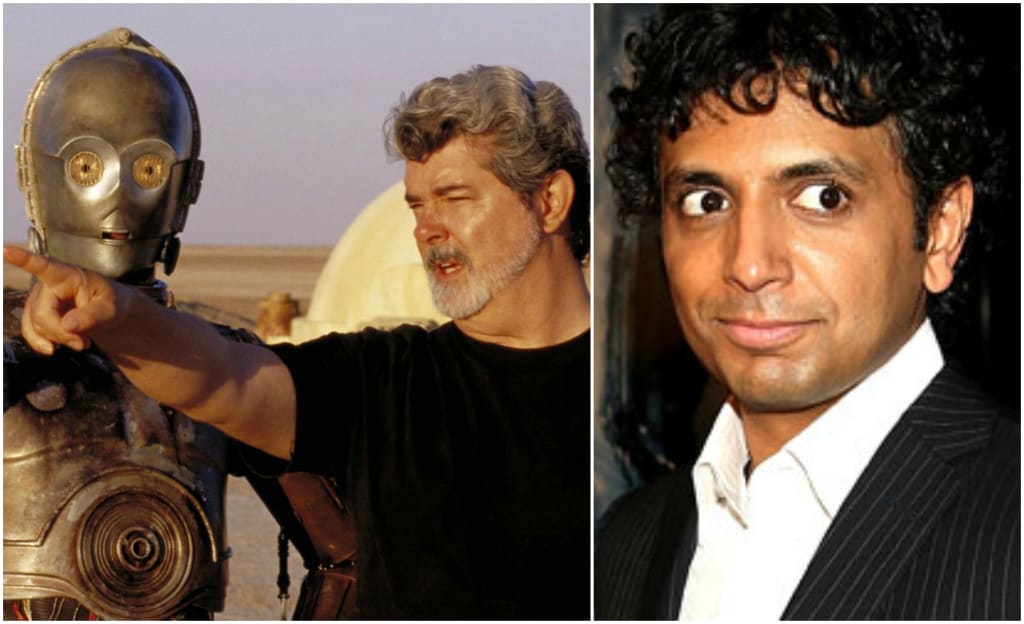
Though some would argue otherwise, movies are a form of art. And what else is art than expression of one's vision brought to reality to offer enjoyment? Therefore, it's important that the vision is brought to reality uninterrupted, pure and raw. In the case of movies, the way the filmmaker imagines a movie, is the way it should be brought to reality.
That is the reason why movie fans get annoyed when hearing that some studio executives have forced the filmmaker to change his or her vision, or when that vision is censored. Therefore, giving a filmmaker the freedom is a necessity.
However, if one looks at the questionable track record that 3 extremely original filmmakers, George Lucas, M. Night Shyamalan, and Tim Burton, have had in the last decade or so, an unpleasantly sounding question arises. Is there a point where the filmmaker has too much creative control over a movie? Let's explore the subject a bit.
Ideally, nothing should come between an artist and his or her vision.
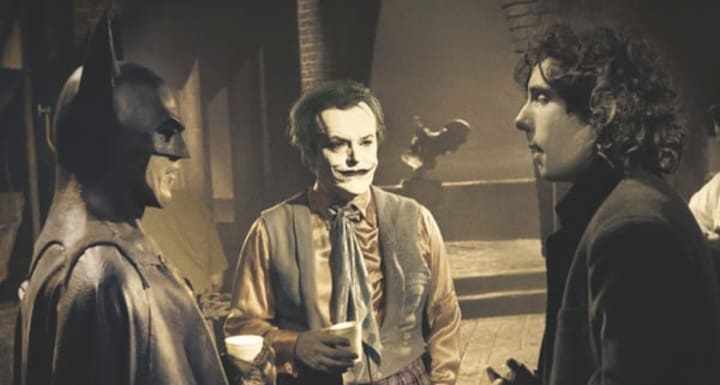
As said before, when considering films to be works for art and filmmaker the artist, then nothing should stand in the way of the artist's vision coming to life unaltered. A movie should be an expression of one's thoughts and vision. It should not be the result of a mathematical equation by some studio executives. The latter can lead to a lot of negative.
That's why people were so disappointed with Spider Man 3. Instead of letting Sam Raimi realize his original vision, the studio insisted on including certain popular elements no matter what (Venom for example). That created a bloated movie that was a clear step down from it's predecessors. That's also why a simple news report about Star Wars: Rogue One reshoots has made people worried. Because it is reportedly happening because Disney executives found the original cut too dark.
Therefore, when the filmmaker is not enabled to fulfill his or her vision, the result might not be very good. Imagine what would happen if a studio decided not to greenlight a Quentin Tarantino movie and demanded that he censor it. Imagine if somebody started messing with Nolan's vision during the filming of The Dark Knight.
The vision should remain pure. This is how truly special movies are born. Lucas, for example, had so much opposition to his original vision of Star Wars: A New Hope, but he did not make compromises. Same can be said of Shyamalan's and Burton's early work. They just went for it with passion and dedication.
It's fascinating to see one person's vision brought to life.

A lot of negative things have been said about the Star Wars prequels. Among them, that Lucas had too much creative control, which is a fair point (we'll get to the reasons shortly). However, one appeal that the prequels undeniably have, is that they are one man's vision brought to life with very little alterations by others. That has a value of it's own and, for better or worse, should be respected.
Originality should be valued.
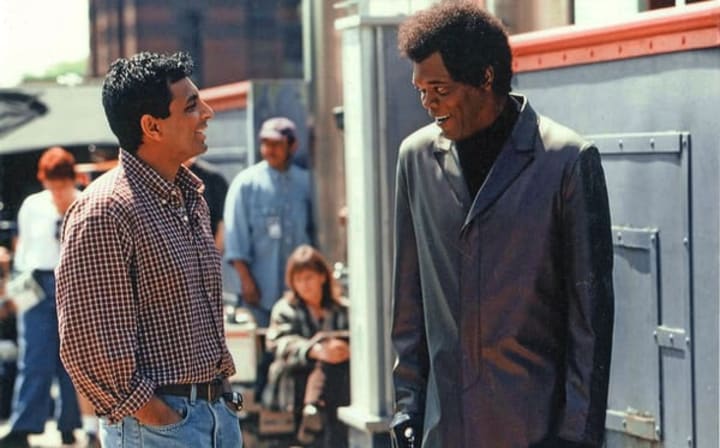
When a director is enabled to realize his or her's vision, the result is likely to be an original one. Of course, originality for the sake of originality might not always be a good thing. However, it is still essential for innovation in the world of cinema.
An original movie offers a different take or a vison on a certain subject and that difference can be enriching for the viewer. Therefore, originality is worth protecting. Limiting filmmakers creative control can destroy originality.
Having said that, one person can have too much creative control over a movie.
Great vision is not enough.
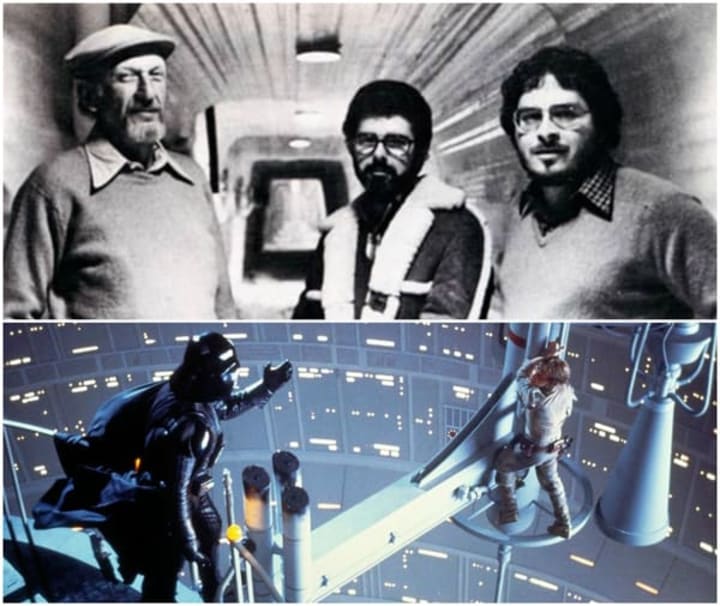
Often, for a vision to reach it's full potential, it's good to bounce it off of others. Anyone, who has ever created something new, can probably relate to that. What sounds good in one's head, might have some shortcomings that the the person with a vision did not even consider before saying it out loud to someone else.
I am not saying that one should always consult others whenever trying to realize a vision and constantly be dependent on other's opinions. Absolutely not. However, it can be helpful. It's the same thing with making movies. Having equally passionate bunch of talented people around the person who provides the vision, can really help the vision to reach it's maximum potential.
That is why Empire Strikes Back is widely considered to be the strongest movie in Star Wars lineup. Lucas provided the vision, but Lawrence Kasdan (script) and Irvin Kershner (director) realized it. Prequels, however, were a one man's show for Lucas. Therefore, many praise the prequels for the vision that is realized and for ideas that are presented, but criticise them on the directing and dialogue.
No matter how much of it is a single creator's vision, making movies is still a massive collaborative effort. So, in a way, by their very nature movies can never be 100% one person's vision.
For example, Thropic Thunder was written, directed and produced by Ben Stiller who also starred in it. Yet, he clearly let talent around him (Robert Downey Jr. and Tom Curise for example) to have their own contribution, thus creating a memorable movie and characters. The guy (Stiller) had a full creative control, but he was willing to let other talented people around him to have a say.
What happens when a vision in not challenged?
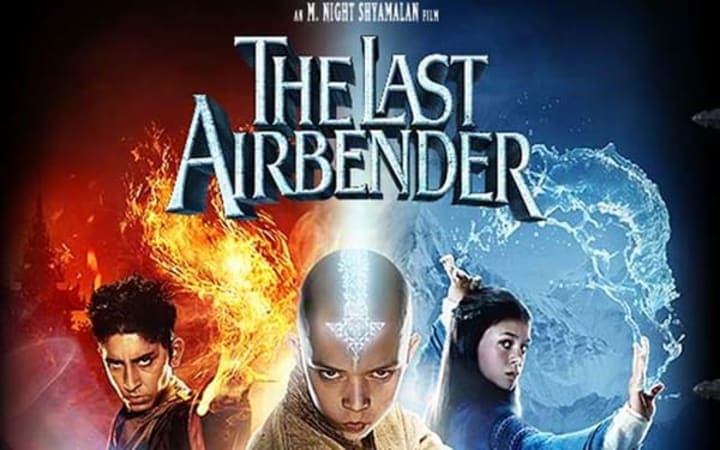
When a filmmaker gets to a point in his or her's career where no one dares to question or challenge their vision, the end result may often turn out to be original but also self indulgent and/or fairly flawed. Like some of the later work of Shyamalan, Burton and Lucas.
I would never call Burton, Shyamalan or Lucas sell outs. They have certainly not sold out. They still head strongly follow their original vision and have the means to do so. This is supposed to be a good thing. Yet, why is their earlier work regarded more highly than a lot of their later work?
One reason could be that nobody seems to question them or their authority on set. This is probably the difference between them right now and them at an earlier point in their career. At the beginning, many did not believe in them. Therefore, they had more initiative to fine tune and find more clever ways to express their vision.
Of course, how Lucas, Burton or Shyamalan realize their vision, should be respected, and I do respect it (and them) immensely. However, nowadays, it seems that they are perhaps too certain of their vision. They don't seem to even consider that it might be flawed and could be improved upon with the help of others. That somewhat false confidence also shows in their work. From a point of view of a simple movie fan (like me) at least.
Vision should not necessarily be the main focus.

Let's compare Lucas, Shyamalan and Burton to few other famous filmmakers - Quentin Tarantino, Steven Spielberg and Martin Scorsese. Why have they been able to deliver content that has had a more steady quality throughout the years?
A lot of it could have to do with where their main focus lays as filmmakers. I would argue, that Tarantino's, Spielberg's and Scorsese's main focus is to tell a story and share ideas that come along with it. They are, first and foremost, storytellers. The main focus for Shyamalan, Burton and Lucas seems to be more on sharing a vision (and ideas that come along with it). They are, first and foremost, visionaries.
Bare in mind that being a storyteller and a visionary are not mutually exclusive to one another. Far from it. Both need to be present when creating a good film. However, a filmmaker can focus more on one than the other.
That could also be one of the reasons why the later works of Lucas, Shyamalan and Burton have been met with a more mixed reaction than Spielberg's, Tarantino's and Scorsese's. A great story is always a great story. A great vision, on the other hand, is only complete when there is a story to back it up.
To Sum Up
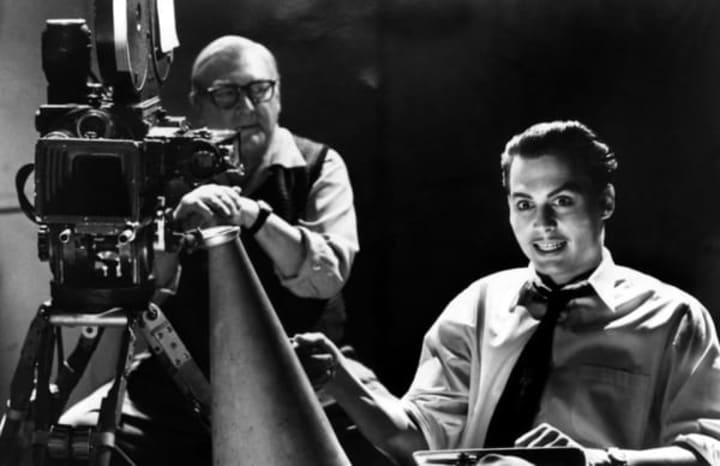
Let's put it like this. If I had to choose between two versions of the same movie. One is an unaltered, original but also a self indulgent vision of the filmmaker, that has not been challenged by anyone during the creation of it . The other one is a much more accessible one that has gone through heavy tinkering by the studio. I would choose the original vision any day. At least it would be something different and could enrich me with another perspective.
However, neither of the two would be the best version of this movie. In my opinion, the best version would be an original vision that is brought to life as a collaborative effort. A collaborative effort, where the filmmaker's vision has been challenged and bounced off from equally passionate talent around the visionary.
A full creative control for a filmmaker is not inherently a negative thing. It all depends on how the filmmaker chooses to use it to tell a story and share it with the talent around him or her.
About the Creator
Art-Peeter Roosve
So, to put it simply (and slightly cheesily) I'm fascinated with life. And, well, writing about films, TV shows, video games, music, travelling, philosophy and Formula 1 among other is a fun way to explore it.


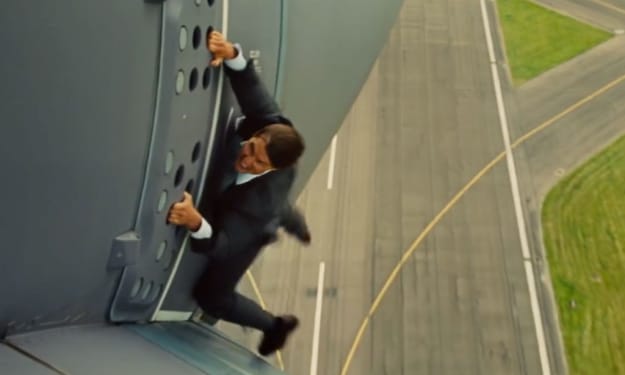

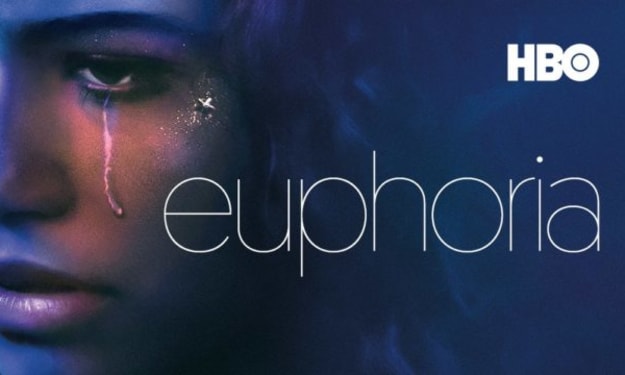

Comments
There are no comments for this story
Be the first to respond and start the conversation.